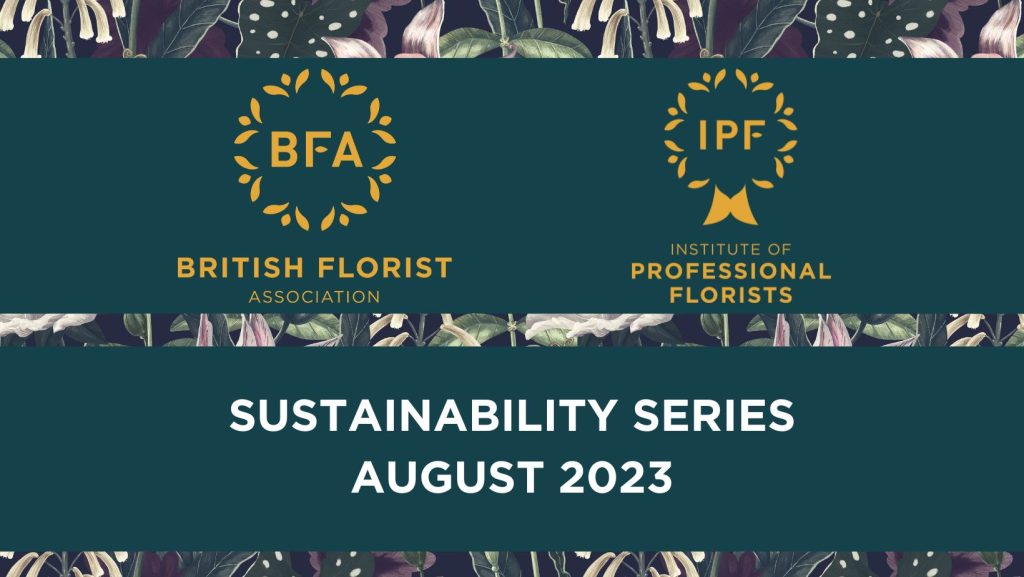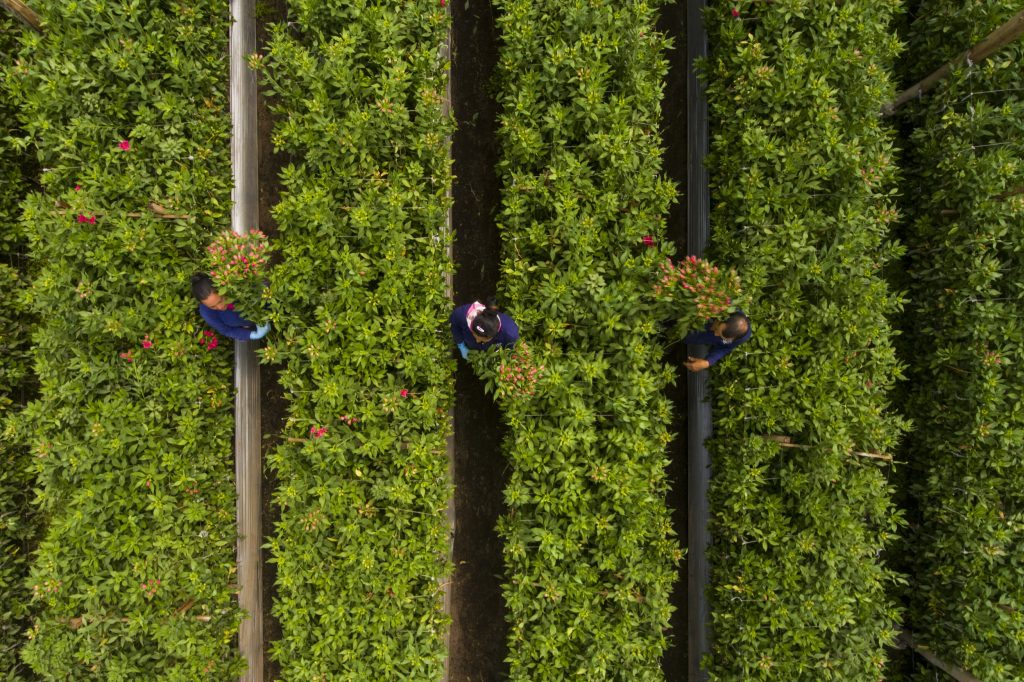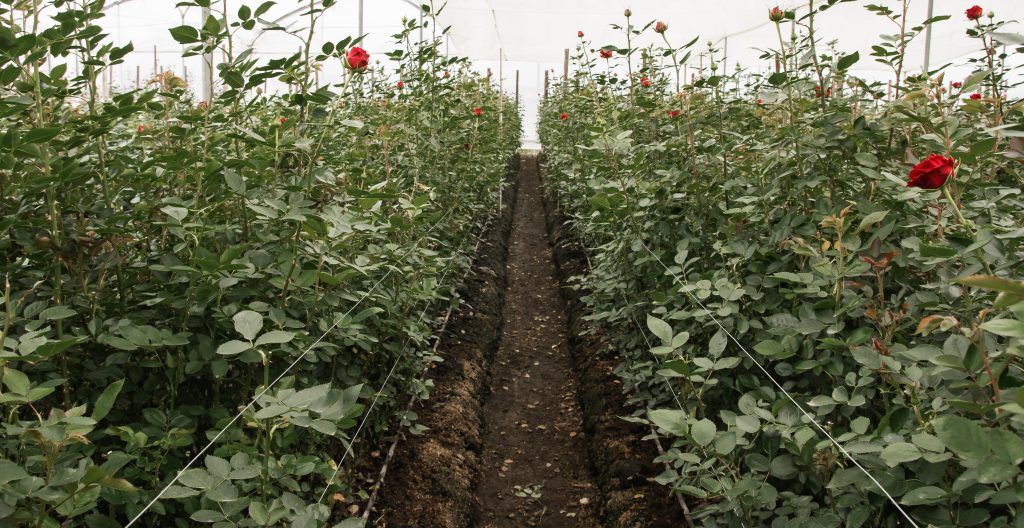
Welcome to the August 2023 newsletter! Can you believe it has been a whole year since our first sustainable focused newsletter!! Grab a cup of tea and settle into your summer news!………..
Calling all Florists!

One of the key areas of sustainability is education, this is effective when we share
information and good practices. We would love to hear from you to celebrate what you
feel has worked well in your business and how you have overcome problems.
Is there anything you find really difficult to achieve at the moment with regards to sustainability?
Let Julie know what we can focus on to assist you in your journey to be more sustainable. Share your success stories so we can pass on the knowledge to all florists for a greener future!
julie@britishfloristassociation.org
Working with no foam mediums
JulieCollins, our Sustainability Officer has been working with alternative mediums to floral foam for over 12 months now and she shares in this film some top tips on how to use and prepare moss, sand and other mediums so that they offer a commercially viable option for you.
Disclaimer: Copper mesh does degrade over time but is reusable many times over.
Moss
Educating the customer on how they can reuse or dispose of the product is key for sustainability. For example, let your customer know that sphagnum moss is an excellent moisture retainer and that it can be reused for hanging baskets or Christmas wreaths. When they have finished it will biodegrade or can be placed in compost.
When using it for event work Julie has let it dry out and then found it can be resoaked and re used. Furthermore, if an arrangement needs to be left at a grave, then using moss with a bio tray is a helpful solution as it will eventually biodegrade.
You should always check your source to make sure that the moss has been grown commercially and ask your wholesaler about the sustainability of the grower.
Fibre Foams
Have you tried using a string grid around FibreFloral™ Design Media from Smithers-Oasis? or for Natural Floral Foam™ from Agra Wool International™?
We found it made the flowers much more stable and helped prevent them from slipping out. You can also try placing the flowers in first and then adding the foliage second, we found this works very well. Should you have more delicate flowers, it is better to use the medium on its side as the block is made up of layers. In this way the delicate stems can be inserted into the block more easily. Both mediums advertise that the product can be reused so visit the individual product websites to get up-to-date information on how best to do that.
Sand
Damp sand has been used as a support for flowers since the 1800s and it would have been covered in sphagnum moss to keep it moist. Julie uses play sand in deep containers, this helps the flowers take up water well. Clean the sand with boiling water after use so it can be reused. It is always a good idea to sample a few flowers before you use it to check how long they last. It is best to arrange the flowers when the sand is slightly moist, then top up with water afterwards as this helps stabilise the flowers and harden the sand, giving the design good support.
Keeping products in use as much as possible really is a key area of sustainability, so if using plastic trays then why not ask the customer if they can return it to you, this will help it stay in use and also save you money
For event floristry and large-scale work, chicken wire can be used for urns, and plastic grave spikes to hold lots of water and flower material. It’s great for arches and other big designs as well. When attaching them to the frame use reusable cable ties as this will save you money, help stop single-use plastic and give you the structural strength you need.
Building Collaboration in the UK Floriculture Industry
Consultation has been taking place over the last few months to find out whether there is a need for a UK collaboration in the Floriculture sector to speed progress towards sustainability goals.

On 24th March a workshop was held at Coventry University which brought together a wide range of Floriculture stakeholders from across the UK. The workshop reported back the consultation findings and there was a widespread agreement that collaboration is needed. This would tackle the sustainability challenges that appear at different points in the cut-flower supply chain.
Eight key challenges were identified:
· Carbon footprints
· Agrochemicals
· Waste, packaging and plastics
· Water
· Gender
· Living wage
· Workers’ rights
· Modern slavery
To view the report please click here
Watch this space as the BFA awaits further news from the meeting.
Flowers from Columbia

We have been finding out from our corporate member Columbia Direct, how sustainable the farms are and the benefits of buying direct from the country of origin. We asked them a few questions to give you an overview of buying from Columbia.
1. How long has your company been operating in Colombia?
Colombia Direct is a UK based company that has been importing flowers from Colombia for over 15years. Our founder, Antonio Porras, has been exporting flowers from Colombia for an impressive 30 years now and has a passion for showcasing the best Colombia has to offer. Having supplied Colombian flowers all over the world, Antonio created Colombia Direct here in the UK to create a platform for UK florists to experience all the benefits that come with buying directly from Colombian farms whilst receiving the best of Colombia
2. What sustainable credentials or certification do you look for when selecting your farms?
All the farms we work with must have a FlorVerde certificate which adheres the farms to the highest standards and codes of conduct for sustainable agricultural practices. It focuses on social, environmental, and economic sustainability, ensuring fair labour practices, water conservation, and responsible pesticide use. The FlorVerde governing body works closely with the Rainforest Alliance and often holds joint audits with them as they work to align floricultural sustainability practices with other agricultural industries.
3. What are the sustainable benefits for the florist from buying direct?
The most obvious benefit from buying direct is the minimised travel mileage and handling associated with direct flights. Our flowers are transported on direct flights (from Bogota to Heathrow) and distributed the day they land to our customers, so it is very easy to calculate the carbon foot print which would be determined by the amount of fuel consumed by the aircraft for the flight. Where the flowers have to fly in transit, say for a Dutch auction in Aalsmeer, the carbon footprint can increase exponentially as it becomes a sum of the fuel consumption between the flight from Bogota to Amsterdam, the transport between the airport to Aalsmeer, the energy used to cold store the flowers whilst they are being sold and then the additional carbon emissions associated with the transportation from Aalsmeer to the intermediaries who will then generate their own carbon footprint whilst distributing their flowers to customers in the UK.
4. Tell us a bit about the farms you work with
The farms we work with all share our vision for producing sustainable, world class flowers and share our uncompromising standards for quality and ethical farming. There are many farms around the world that are set up to exploit high seasons and specialise in producing flowers in the cheapest way possible, often at the expense of the people that they employ, the environment that they operate in and ultimately the quality of the flowers they produce. By buying from the same farms all year round, we can develop long lasting relationships and collaborate as we mutually invest to achieve our shared vision for Colombian flowers. It is our mission to ensure that we promote flowers from quality farms whilst also making sure that they are sold at accessible prices for florists looking to work with the best possible flowers.


5. Do your farms use pesticides, and if not how do they control pests and disease?
The farms will use pesticides during production however as sustainability certificate holders they are heavily regulated and audited under strict criteria upheld by the organisations auditors. The criteria farms have to adhere to are as follows:
a) Pesticide Selection and Approval: Farms are required to use only authorised and registered pesticides. These are chemicals that have been thoroughly tested and approved by regulatory authorities for their safety and efficiency. Unregistered or highly hazardous pesticides are not allowed.
b) Minimum Risk Pesticides: The certification program encourages the use of “minimum risk”pesticides through grants and subsidies, which are substances considered to have low toxicity and minimal impact on the environment. These can include certain biological pesticides and natural plant-based repellents
6. Do the farms recycle water, or monitor water pollution?
As sustainability certificate holders all our farms are obliged to monitor water pollution to maintain their certification. The certification process involves on-site inspections and assessments by trained auditors who will verify that the flower farm meets the required water quality standards and adheres to the following sustainable water management practices:
a) Water Quality Monitoring: Farms regularly monitor water quality within and around their production areas. Farms must conduct tests every quarter to measure the presence of pollutants and ensure that the water meets acceptable standards set by the accreditation. This includes testing for chemicals, fertilisers, pesticides, and other potential contaminants.
b) Efficient Irrigation Practices: Farms are encouraged to adopt efficient irrigation practices to minimise water waste and reduce the chances of excess water, which may carry pollutants, entering natural water systems.
c) Water Recycling and Treatment: Farms seeking FlorVerde certification are encouraged and supported in implementing water recycling systems and wastewater treatment facilities.

7. Tell us about transportation regarding carbon footprint?
All our flowers are flown on direct flights in order to minimise the travel distance from farm to shop. We also make sure we use passenger planes instead of chartering our own flights to ensure that we are not contributing to additional emissions unnecessarily. Once in the UK we apply a minimal approach to handling and storage. As soon as the flowers land we work tirelessly to ensure they are at our customers shops as quickly as possible to minimise our energy and carbon footprint consumption here in the UK.
8. Do the farms look after their workers welfare with fair pay and health and safety considerations?
FlorVerde Sustainable Flowers places a strong emphasis on safeguarding the welfare of workers on flower farms. The certification program includes comprehensive guidelines and requirements that address various aspects of worker well-being. Here are some of the criteria the farms are measured against:
a) Fair Labour Practices: Farms are required to comply with fair labour practices. This includes providing workers with fair wages, adhering to local labour laws, and ensuring that proper measures are in place to easily monitor that working hours are reasonable and within legal limits.
b) Occupational Health and Safety: The certification program mandates that flower farms prioritise the health and safety of their workers. Farms must implement measures to prevent workplace accidents and provide training on safe working practices and the proper use of protective equipment.
c) Access to Healthcare: Flower farms seeking Florverde certification must provide workers with access to basic healthcare facilities and services. This includes access to medical care and first aid facilities on the farm or arrangements for nearby medical assistance.
d) Child Labour Prevention: The certification program strictly prohibits the use of child labour. Flower farms must take thorough measures to verify and document the age of all their workers and ensure that no child is employed in any farm activity.
e) Grievance Mechanism: FlorVerde requires flower farms to create and maintain a grievance mechanism that allows workers to voice and document any issues related to their welfare or work conditions which are reviewed during routine audits.
We’d like to thanks Columbia direct for their time to help us educate on sustainability and buying flowers from Columbia.
We hope you enjoyed Augusts news and we’ll see you next time!


